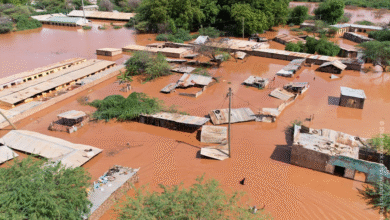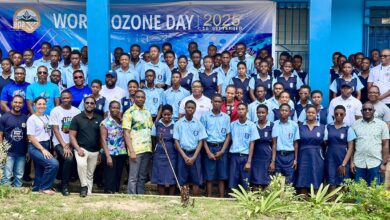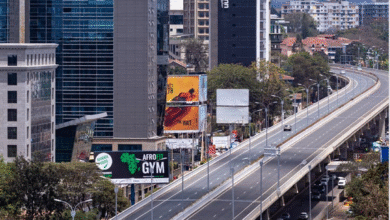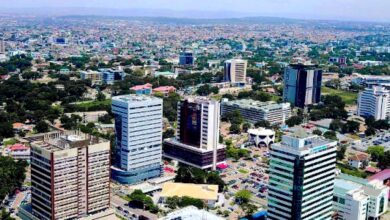Fire Halts COP30 Talks in a Stark Reminder of the World’s Fragility
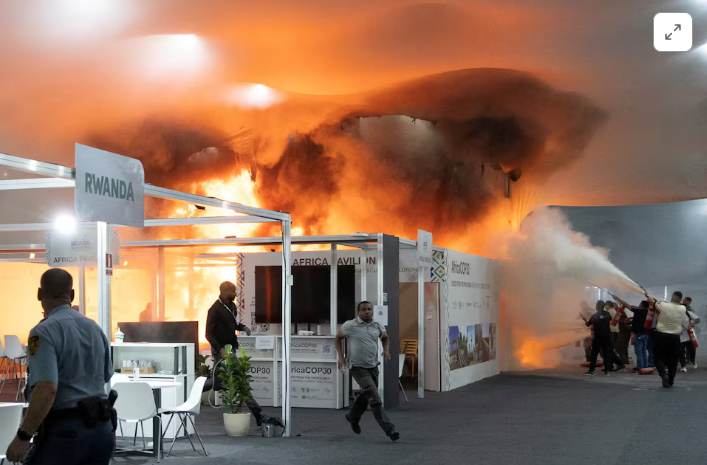
The final day of COP30 in Belém, Brazil, was meant to be the decisive sprint toward a global climate agreement. Instead, the conference grounds were thrown into confusion when a fire broke out inside one of the pavilions, forcing thousands of delegates to evacuate and abruptly halting negotiations that were already running against time.
The blaze spread quickly through part of the temporary conference structure, sending smoke into nearby halls and triggering panic as people scrambled for safety. What followed was a scene few expected at a global summit of this scale: rushed evacuations, medical teams tending to smoke-inhalation victims and terrified delegates gathering outside under intense Amazon heat.
A Fire at a Climate Summit — An Uncomfortable Symbol
COP conferences are designed to project order, stability and preparedness. Yet the very meeting aimed at strengthening global resilience against climate threats was disrupted by a crisis it could not contain.
Delegates who had spent the week discussing disaster preparedness and climate adaptation suddenly found themselves in the middle of an emergency. Walls and ceilings burned through in minutes. Temporary structures meant to host discussions on resilience revealed their own vulnerabilities.
For many observers, the symbolism was hard to miss. A world struggling to build climate-resilient systems was reminded that even its global decision-making spaces remain fragile.
Amazon Host City Confronts Its Own Fire Challenge
Belém was selected as host city to spotlight the Amazon rainforest and Brazil’s leadership in environmental protection. Instead, the fire at the COP venue revived uncomfortable questions about the region’s growing exposure to heat, drought and fire outbreaks.
Images of smoke rising from the summit grounds contrasted sharply with Brazil’s earlier message of strength and environmental stewardship. The incident underscored a reality the Amazon has confronted for years: even the most critical global events are not immune to the risks shaped by climate pressure and ageing infrastructure.
Negotiations Thrown Off Course
The fire struck at the worst possible moment. These talks typically reach their most intense phase in the final hours, with ministers ironing out disagreements over finance, emissions targets and adaptation plans. The evacuation scattered negotiating teams, stalled key sessions and left delegates anxiously waiting for updates outside the venue.
Some sat on the ground with laptops still open. Others huddled under a nearby petrol station roof. Delegates described the atmosphere as tense and disoriented, with many unsure how or when talks would resume.
Such breaks in rhythm can alter the outcome of climate negotiations, reducing ambition or forcing rushed compromises simply to meet deadlines.
A Wake-Up Call About Infrastructure and Preparedness
The incident has raised serious questions about the safety of large-scale climate events, many of which rely on temporary structures built under tight timelines. Early accounts suggest an electrical fault may have triggered the fire, though investigations continue.
Observers say the event points to broader concerns. If a venue hosting thousands of people from around the world can burn so rapidly, what does it say about the readiness of global systems to manage rising climate-related risks.
It is a reminder that climate negotiations cannot be separated from the real-world vulnerabilities communities face every day.
A Human Shock Beneath the Headlines
Behind the dramatic images is a very human story. More than a dozen people suffered smoke inhalation. Delegates described scenes of confusion, shouting and near-stampede moments. Medical teams worked urgently to stabilise the injured. Many were left shaken long after the flames were extinguished.
The experience reinforced what is often lost in technical climate discussions: climate threats translate directly into human fear, physical danger and the sudden breakdown of systems we assume are safe.
A Warning for the World
COP30’s fire did not only disrupt a global negotiation. It delivered a sharp warning. As nations struggle to craft plans that can withstand rising temperatures and intensifying weather, the incident exposed how unprepared even the most important global gatherings remain.
The message was unintentional but unmistakable.
If the world hopes to build resilience, it must confront vulnerabilities that sit right in front of it. Even at the heart of global diplomacy, safety cannot be taken for granted.

